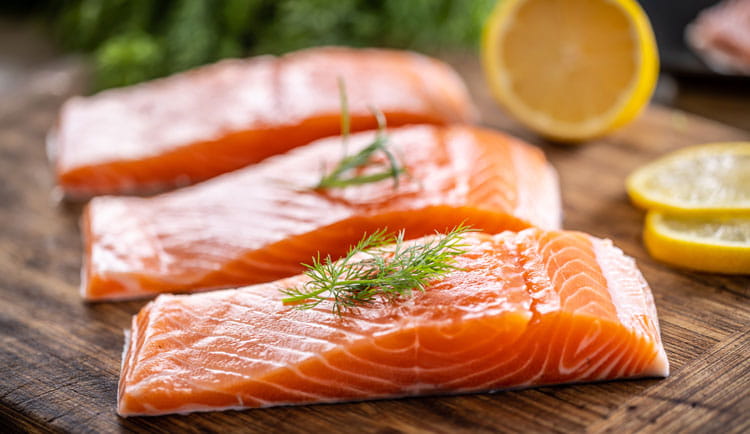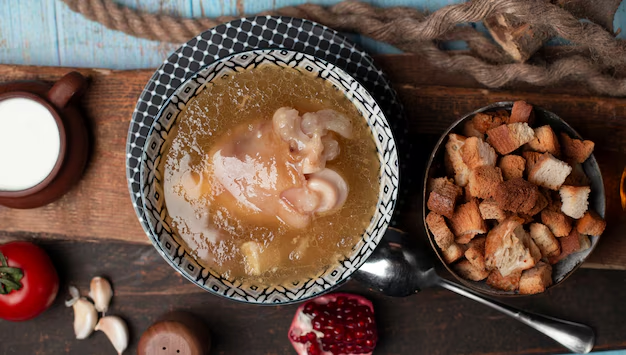Joint pain and stiffness can make everyday tasks difficult, whether you’re active, working full-time, or getting older. While exercise and medical care are important, your diet also plays a major role in supporting your joints. Eating the right joint health foods can help reduce inflammation, protect cartilage, and improve your flexibility over time.
These foods are packed with nutrients that help keep your joints moving smoothly. From colorful fruits and vegetables to fatty fish and nuts, adding the right ingredients to your meals can make a big difference. Many of these joint health foods also have antioxidants and healthy fats that fight joint damage and support long-term mobility.
If you want to support your joints naturally, start by including more of these beneficial foods in your daily routine. Eating well not only boosts your overall health but can also help you stay active and comfortable for years to come.
🌟 Why Nutrition Matters for Joint Health
Your joints are supported by cartilage, synovial fluid, ligaments, and bones. These parts work together to keep your movements smooth and pain-free. To function properly, they need the right nutrients. Poor eating habits can lead to more inflammation, weaker tissues, and faster joint damage, making everyday activities harder over time.
Including joint health foods in your diet can help protect and strengthen these vital parts. These foods provide key nutrients that support joint repair, reduce inflammation, and improve overall flexibility. By choosing joint health foods regularly, you give your body what it needs to keep your joints healthy and strong. A balanced diet can go a long way in helping you stay active and comfortable.
🥦 Top Joint Health Foods
Fatty Fish (Salmon, Mackerel, Sardines)

Cold-water fish like salmon, sardines, and mackerel are great joint health foods. They are full of omega-3 fatty acids, which are healthy fats that help reduce swelling in the body. Inflammation is one of the main causes of joint pain and problems like arthritis. Eating these types of fish can help lower pain, ease morning stiffness, and make your joints feel more flexible. They can also help improve hand strength, especially for people with rheumatoid arthritis. Including these fish in your meals a few times a week can make a real difference in how your joints feel and move.
Why cold-water fish are good joint health foods:
Rich in omega-3 fatty acids that reduce joint inflammation
Help ease morning stiffness in arthritis patients
Improve grip strength and joint flexibility
Support overall joint health and comfort
Offer other nutrients like vitamin D and protein for strong bones and tissues
Easy to add to meals—grilled, baked, or added to salads and soups
A natural and tasty way to protect your joints long-term
🔹 Tip: Aim for at least 2 servings per week.
Leafy Greens (Spinach, Kale, Swiss Chard)
Leafy green vegetables like spinach, kale, and collard greens are excellent joint health foods. They are full of important nutrients such as vitamin K, calcium, and antioxidants. These nutrients help keep your bones strong and protect your joints from damage. Vitamin K plays a big role in keeping cartilage healthy and preventing swelling in the joints. Eating leafy greens regularly can help reduce joint pain and support smoother movement. They are easy to add to your meals and can help your joints stay healthy over time.
Why leafy greens are great joint health foods:
High in vitamin K, which supports healthy cartilage
Rich in calcium to help keep bones strong
Packed with antioxidants that fight joint damage
Help lower oxidative stress in joint tissues
Support reduced inflammation in the body
Easy to include in salads, soups, or smoothies
Natural, plant-based way to support long-term joint comfort
🔹 Bonus: They’re low in calories, so they support a healthy weight—less pressure on your joints!
Berries (Blueberries, Strawberries, Raspberries)

Berries like strawberries, blueberries, and raspberries are tasty and healthy joint health foods. They are full of natural compounds called anthocyanins, which help reduce swelling and protect the joints from damage. Berries also have a lot of vitamin C, which your body uses to make collagen. Collagen is the protein that keeps your joints cushioned and helps them move smoothly. Eating berries regularly can help your joints stay flexible and strong, and they’re easy to enjoy as snacks, in smoothies, or on top of cereal.
Why berries are great joint health foods:
Rich in anthocyanins that fight inflammation
Help lower oxidative stress in joint tissues
High in vitamin C, which supports collagen production
Improve joint cushioning and flexibility
Provide antioxidants that protect joints from damage
Easy to include in everyday meals and snacks
Sweet, natural way to support long-term joint health
🔹 Snack smart: Add a handful of berries to your morning yogurt or smoothie.
Nuts and Seeds (Walnuts, Flaxseeds, Chia Seeds)
Nuts and seeds are excellent joint health foods that can easily be added to your daily meals. They are full of healthy fats, vitamin E, and magnesium. These nutrients work together to help lower swelling in the joints and protect them from damage. The healthy fats found in nuts and seeds, especially omega-3s, are known to support joint comfort and flexibility. Eating a handful of nuts or seeds as a snack or adding them to your meals can help keep your joints healthy and strong.
Why nuts and seeds are top joint health foods:
Packed with healthy fats that reduce joint inflammation
Good plant-based source of omega-3 fatty acids
Contain vitamin E, which helps protect joint tissues
High in magnesium, which supports bone and joint strength
Help slow down cartilage breakdown over time
Easy to enjoy in salads, yogurt, or as snacks
Support long-term joint function and flexibility naturally
🔹 Try this: Sprinkle flaxseeds on your salad or yogurt for a crunchy boost.
Turmeric

Turmeric is a golden-yellow spice that is well known for its health benefits, especially for the joints. It contains a special compound called curcumin, which helps reduce swelling and pain. Curcumin is especially helpful for people with joint problems like osteoarthritis. It can ease stiffness and make movement easier. Turmeric is easy to add to meals like soups, stews, or even smoothies. When used regularly, it can support joint health and comfort over time, making it a great choice among joint health foods.
Why turmeric is a powerful joint health food:
Contains curcumin, a strong anti-inflammatory compound
Helps ease joint pain and stiffness
Supports better movement, especially for osteoarthritis
Fights swelling that damages joints
Can be added easily to many dishes
Works best when taken regularly over time
A natural way to protect and support healthy joints
🔹 Pro tip: Pair it with black pepper (which contains piperine) to increase absorption by up to 2000%.
Olive Oil
Extra virgin olive oil is not just used for cooking—it also helps support joint health. This healthy oil contains a natural compound called oleocanthal, which can reduce swelling and pain in the joints. Oleocanthal works in a similar way to pain-relief medicine like ibuprofen, but it comes from a natural source and doesn’t have the usual side effects. Adding olive oil to your meals daily, such as in salads or cooking, can help ease joint pain and support better movement. It’s one of the easiest and most effective joint health foods you can use every day.
Why extra virgin olive oil is a great joint health food:
Contains oleocanthal, a natural anti-inflammatory compound
Helps reduce joint pain and swelling
Acts like ibuprofen but without side effects
Supports smoother joint movement and flexibility
Can be used in salad dressings, cooking, or as a dip
Adds flavor and health benefits to meals
Simple, natural way to improve long-term joint comfort
🔹 Switch out: Replace butter with olive oil for sautéing or salad dressings.
Bone Broth
Bone broth is a warm and healthy drink made by slowly cooking bones and connective tissue. It is full of nutrients like collagen, glucosamine, and chondroitin, which are all very helpful for your joints. These nutrients support the structure of your joints and help reduce pain and stiffness. Drinking bone broth often can make your joints feel stronger and more flexible. It’s easy to add to soups or enjoy on its own, making it a simple and tasty way to take care of your joints with joint health foods.

Why bone broth is one of the best joint health foods:
Contains collagen to support joint and cartilage strength
Rich in glucosamine and chondroitin for joint comfort
Helps reduce joint pain and stiffness
Supports better movement and joint structure
Easy to drink alone or use in soups and stews
Natural and gentle on the stomach
A comforting and nourishing way to improve joint health
🔹 Warm comfort: Enjoy a cup of homemade bone broth daily or use it as a base for soups.
Whole Grains (Quinoa, Brown Rice, Oats)
Whole grains are much better for your joints than refined grains. Refined grains, like white bread or white rice, can cause more swelling in the body. On the other hand, whole grains like brown rice, oats, and quinoa are full of fiber. Fiber helps lower a substance in the blood called C-reactive protein (CRP), which shows how much inflammation is in the body. Eating more whole grains can help lower inflammation, protect your joints, and support long-term joint health. That’s why whole grains are considered great joint health foods.
Why whole grains are good joint health foods:
Help reduce inflammation linked to joint pain
Contain fiber that lowers C-reactive protein (CRP)
Support better digestion and overall health
Include brown rice, oats, barley, quinoa, and whole wheat
Provide long-lasting energy without sugar spikes
Better choice than refined grains for joint support
Easy to add to daily meals like breakfast or dinner
🔹 Meal upgrade: Swap white rice for quinoa or whole-grain alternatives.
💧 Hydration: The Overlooked Secret
Water is crucial for keeping your joints healthy. It helps lubricate your joints and maintain the synovial fluid that allows them to move smoothly. Without enough water, your joints can become stiff and uncomfortable. Even mild dehydration can cause joint pain and make it harder to move freely. To support joint health, it’s important to drink plenty of water every day. Aim for at least 8 glasses of water a day, and drink more if you’re active or exercise regularly. Staying hydrated is one of the easiest ways to keep your joints working well.
Why water is important for joint health:
Keeps joints lubricated and helps maintain synovial fluid
Prevents joint stiffness and discomfort caused by dehydration
Supports smoother movement and flexibility
Drinking enough water can reduce joint pain
Essential for overall joint health and function
Aim for at least 8 glasses a day, more if active
A simple and natural addition to your daily routine to protect joints
🍽️ Sample Joint-Friendly Meal Plan

Breakfast: Start your day with Greek yogurt topped with chia seeds, fresh berries, and a touch of honey. This meal is rich in protein and antioxidants, perfect for supporting joint health foods.
Lunch: Enjoy grilled salmon on a bed of spinach and quinoa, dressed with olive oil. This meal provides omega-3s and vitamins that help reduce joint inflammation.
Snack: A handful of walnuts paired with a cup of green tea. These joint health foods are packed with healthy fats and antioxidants to support joint comfort and reduce swelling.
Dinner: Savor a warm bone broth soup with leafy greens and whole grain toast. Bone broth is rich in collagen, glucosamine, and chondroitin, which are great for joint health.
Dessert: Treat yourself to a small bowl of dark chocolate and raspberries. Both are packed with antioxidants that help fight inflammation, making them perfect joint health foods.
🛑 Foods to Limit for Joint Health
Avoid foods that trigger inflammation and may worsen joint pain:
Processed and fried foods
Excess sugar and sugary beverages
Refined carbs (white bread, pastries)
Red and processed meats
Excessive alcohol

✅ Final Thoughts
In conclusion, maintaining strong and flexible joints begins with the choices you make in your kitchen. Joint health foods play a crucial role in reducing inflammation, preserving cartilage, and supporting overall mobility. Incorporating nutrient-rich options like fatty fish, leafy greens, berries, nuts, turmeric, and olive oil into your daily meals can significantly improve joint function and comfort. These foods work naturally with your body to ease pain, enhance flexibility, and slow down age-related joint deterioration.
At the same time, it’s important to limit processed foods and sugars that can trigger inflammation. Staying hydrated and maintaining a healthy weight also contribute to long-term joint wellness. Whether you’re looking to prevent issues or manage existing conditions like arthritis, a diet rich in joint health foods is a simple yet powerful tool. Make these foods a regular part of your lifestyle, and your joints will thank you for years to come.
FAQs
- What are the best joint health foods to include in my diet ?
Some of the best joint health foods include cold-water fish (like salmon), leafy greens, berries, nuts and seeds, bone broth, whole grains, and water. These foods help reduce inflammation, support cartilage, and improve joint function. - How does water help with joint health ?
Water is essential for lubricating your joints and maintaining synovial fluid, which allows for smooth movement. Staying hydrated helps prevent joint stiffness and reduces discomfort, especially if you’re active or exercise regularly. - How often should I eat foods for joint health ?
Including joint health foods in your daily meals can make a significant difference. Aim to incorporate these foods into breakfast, lunch, and dinner, and enjoy healthy snacks throughout the day for continuous joint support. - Can bone broth really help with joint pain ?
Yes, bone broth is rich in collagen, glucosamine, and chondroitin, all of which help maintain joint structure and reduce inflammation. Drinking bone broth regularly can support joint health and improve mobility over time. - Are there any foods I should avoid for better joint health ?
Avoiding processed foods, refined grains, and foods high in sugar can help reduce inflammation and protect your joints. These foods can contribute to swelling and joint discomfort, so focusing on whole, nutrient-rich foods is key for joint health.


